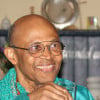Why don't facts change a person's opinion?
Why don't facts change a person's opinion?
More than 30 years or research show that attempts to refute false information often backfire and lead people to hold on to their misperceptions even more strongly. Source: Christopher Graves, the Harvard Business Review (February 2015), Why do you suppose that is?
It is so much easier for people to believe hackneyed conjectures that to study &gain from factual information. People rather believe in falsehoods & stereotypes because these things give them some type of closure. To them, these falsehoods & stereotypes give them security. If they believe in facts, they would become psychologically & psychically unsettled & insecure, even discombobulated. They also would rather be ensconced in the old way of believing & doing things than to grow & evolve with more relevant information.
To further add, people know that the factual information is more correct but they elect to be in denial, even believing the hackneyed stereotype as such give them some type of satisfaction. They would rather believe what they contend to be right than what is actually right. People want to believe in their own delusions. They would rather rationalize their illogical premise than to face correct facts.Because.... what makes you think you're right, when I already know I'm right?
I'm thinking back to times that I HAVE changed my opinion... one such time was in believing I got enough 'water' in my system by drinking coffee, milk, pop, booze, ect.When the Church ran our lives we didn't need to do our own thinking. Now we have religious freedom we are confused. The steering mechanism's gone.
Grace: "Cat on a Hot Tin Roof" Can't remember his name, but I can hear his voice..."Mendacity!". Great choice.
Alan: Good point well expressed.The character was Big Daddy, he was very imperious & controlling. Things had to be HIS or NO way.
Alan: When did "The Church" run our lives? Those guided by the Holy Spirit and not man (Catholics) NEVER listened to "The Church" but GOD!
"The Church" is the reason so MANY are still "confused!"
"Steering Mechanism"=Holy Spirit=NOT "gone!"Norine, have you no clue that Grace might be talking about you?
Grace is entitled to her opinion as much as you and I!
I have a t-shirt that says, "Isn't it boring to be just like everyone else?" I am the odd ball of the family. My sisters and brother do everything "right". I get them worried all the time because I don't cow down to bull
I think it's laziness honestly more than an inability to change one's mind. Yes, change is difficult, but not impossible. Most humans, however, avoid discomfort, and having one's beliefs challenged is uncomfortable at best.
The brain is hard-wired to want to be right. Combine that with "facts" that are almost always skewed with an agenda, particularly in the media that people depend on for their passive information gathering, and you get this phenomenon of people "digging in".
Psychological manipulation and propaganda work very well, because most people are not actively seeking information on their own. They believe if they listen to the news for example, that they are informing themselves with facts. Most people do not follow up and investigate things they are told.
We are taught to unconditionally trust - doctors, religions, govt institutions etc. and most of us at some point will blindly obey rather than do the difficult task of confirming or being skeptical. We all do it. Every one of us has allowed our perceptions/emotions to get the better of our judgment.
It's laziness, conditioning and the natural inclinations of the human brain all rolled into one. The "powers that be" know full well how the mind works and they are great at manipulating people. They love "divide and conquer". If we ever started banding together and focusing on solutions instead of arguing, there would be a major paradigm shift around the world.
I am not optimistic that would ever happen . Great question to ponder though.
. Great question to ponder though.It's how Hitler came to steer the Fatherland into the buffers.
Laziness in politics always lets in the 'duffers'.Christin~~ Very VERY well said. Bravo! No argument here. Or....should I just for the heck of it?? LOL
lol Paula - you never know around these parts but this particular Question has a lot of very interesting answers

OH.....that's the word for them? Interesting? OK, I like it! LOL
Some people never want to change there minds no matter what unfortunally.They have just decided that they are correct so to say..
Sorry, I made a comment instead...
What I meant to say was in believing I was getting all the 'water' my body needed by drinking coffee and other beverages, I didn't need to drink water. In fact, the running joke in our area was, 'Water?! You'll rust your pipes!'
It took an entire book to convince me the importance of pure drinking water to our system. That book, Your Body's Many Cries for Water, by Dr. F. Batmanghelidj, finally changed my perception.
Now I'm wondering what actually convinced me to READ that book, much less add it to my personal library... which I did.
But I think that shows it practically takes an act of God... or at least a book... to open us up to the realization someone else's discovery might be correct."It practically takes an act of God... or at least a book... to open us up to the realization someone else's discovery might be correct." You said it. It's not even so much that we can't accept we might be wrong. OMG - someone else might be right!!
Some people don't mind some other people being right as long as it's not someone that they need, for their own ego's sake, to be not-right. I think of it as selective narcissism, essentially....
Simply put, because many humans never want to admit they are wrong and many refuse to adapt and change when new information or facts are discovered. In my life long observations of similar people and situations so far, it must be noted that that these types of folks often do not enjoy learning, let alone admit when they are wrong, and/or they are unable to or refuse to acknowledge that someone else knows more than they do. It comes down to selfishness and preservation of one's own ego. And this nonsense is quite harmful in a variety of situations.
"Where ignorance is bliss..." Learning seems to be anathema to rule in many places. Keep 'em dumb, keep 'em down, keep 'em quiet!"
Express, I know about this.^ There are people who rationalize negative situations although research tells them that the situation is negative. They delude themselves into thinking that ALL is well when it definitely.....ISN'T. IT'S called..DENIAL!
I could not agree with Alan & Grace any more than I already do!
Never let reason interfere with homespun philosophy. We've still got 'Flat Earthers', 'Seventh Day Adventists', 'Anti-evolutionists'... and now 'Anti-Frackers'.
Depends on who passed their homespun philosophies on to us in the first place. Most of us are unwilling to confront friends, relatives etc with the 'facts'. It can sour the milk of human kindness. Better just to leave things as they are and avoid the subject like the plague.I have members of my family who would have me on their prayer lists if they knew my views. It's why I keep them off FB and vent here on HP!
My wife goes to a church where there's lots of them. Their vicar's more up-to-date but he doesn't confront them. The world goes back 5,000 years... Noah's got a lot to answer for. Even the Inquisition would've had a ball with him,
I think people are ruled by emotion more than by logic. That is what make us human. We feel comfortable in certain believes and no amount of facts or evidence will change that belief system. It is possible to change but it will take a dramatic event or an epiphany.
That's all right on a local level. On a national or international level we've got to leap the old 'familiarity' hurdle and start to think with our brains. There are too many countries who let their beliefs get in the way without us joining in.
@ Jack, this is so true. When logical findings are explained to such people, they prefer to rationalize, even deny whether to accept logical conclusions.
Readers: Please sort by latest comment. I didn't mean to select a best comment because everyone in this discussion has contributed in a valuable way. Me and technologly - sheeze - I can't change a lightbulb!
Kathleen.....I immediately thought of a list of simple words to try to explain why some individuals refuse to allow truth & facts to get in the way of what they believe. Ordinary Stubbornness, Ignorance, Fear, Superstitions, Narcissism, Delusion, Immaturity, Ulterior Motives.
Yes, there's much more and certainly deeper & more complex reasons, but then I'd get into a long, drawn out tutorial on Human Nature as well as Human Behavior. I'll bet no one wants to read through all that! Then, there are those who are genuinely convinced in a very innocent & honest way that they simply are right!
I will add though that I've had to deal with far too many up-close and personal situations with people close to me, than I care to recall. My dear & departed Mother for one (Love you Mom!) Oh Lord help us Kathleen! My sister and I nearly put our heads through brick walls trying to re-program our wonderful but sorely misinformed, stuck solidly in beliefs and ideas ------depression-era Mom. Oh, but she was only one of many. Here's the kicker in some of these situations. I'm sure this has happened to many. You try repeatedly in your most informed, patient manner to steer someone away from total fictional nonsense. You spend a lot of time and concern, provide documents, evidence, testimonials, confirmation etc, only to be met with stern, solid rebuttal, denial, refusal. Then one day, that very same "lovely" person declares they are NOW 100% convinced they had all the wrong beliefs for all these years ....BECAUSE AGNES AT THE HAIR SALON TOLD HER SO!!
Those are the things that can make a person want to JUMP! LOL
Heck, if we all believed the very same things about every little thing, there goes our humanness!....Also, what would some of us do for a living?? Good question. I don't suppose this has anything to do with Politics, does it??
lol I had to laugh because I recognize a couple of people in my own life who shall remain anonymous. You reason, explain, show them things - they argue til blue and then have an epiphany from Bob the bartender or whatever lol.
Then there's the thing where you make a statement. Someone says nothing. Two or three weeks later (maybe after they had someone confirm it, or maybe because it sounded good when you said it) they'll say it to you as if they thought it up.
ME.....You & Christin & I must know some of the very same people!! LOL!
People are so amusing and entertaining!
Here's a term to consider.And this is something I've repeated numerous times. The term is confirmation bias. Simply put, people seek out information that will fit with their beliefs, regardless of its validity. Those with strong confirmation bias will actually reject hard facts with valid evidence to support something less compelling, just because it challenges their point of view. They may say the sky is red. In return you show all the best evidence that it's blue. They'll go out of their way to discredit your sourse possibly your own argument (sometimes in the most illogical way possible). No matter what you say and show, they'll hold on to the notion the sky is red. The sad part is that you can find those examples throughout these forums as well as the articles .
Welcome to the club, Dean. Tell me what I want to know, as long as I want to hear.
People are prideful and fearful.
Few of us will admit we could be wrong. Fewer still will admit that we are wrong when someone else is claiming to be right. It makes us feel inferior and caught in a spotlight. We hold tighter to our misperceptions, as somehow it's easier than to give in and look dumb.
People also need to feel secure, and are grounded by their belief systems, regardless of factual evidence. Society has somehow adopted that "personal truths" are more important than actual truths because of individualistic freedom.
Refuting them is like taking a crutch away from someone with a broken leg. They need to be convinced of the truth that makes them whole before they can get rid of the false truths they've been clinging to.
I've found that focusing on the truth rather than all the false claims of the other person, is usually a more effective approach to the game.
Also, Sparkster wrote a great hub about Cognitive Dissonance that could be another interesting explanation. I was just readin through it. You should check it out! http://hubpages.com/education/Cognitive … Believe-ItFunnily enough, I actually wrote a hub on this topic

Check it out if you want to: http://hubpages.com/education/Why-Cant- … Each-OtherGood read. I recommend this hub to anyone interested in more on this subject. Thanks Virginia!
Facts doesn't change peoples opinion because all of us are different and all of us has different point of veiws.Some people may be filled with facts and they don't even think about changing their opinion. But other people with a different point of veiw might only be told one fact and thier whole prospective changes in seconds.
Dear friend,all people have different point of views.change is difficult, but not impossible.just leave things as they are.
Could it be what is considered a fact today could change tomorrow? What people thought were facts of life 100 years ago would be laughed at today. Who know what will be considered a fact in the future. Numbers can be spun and theories change. There are also dueling facts depending on the source. Makes you wonder what exactly is a fact. Maybe it's all on how people perceive it.
This is an interesting take on the question. You make a good point, though some facts are as indisputable as gravity.
The fact that the sun was rising and setting was a fact until proven otherwise. It took so much time, effort and pain to change the opinions of pretty much everybody.
That is so true. How many herbalist were burned at the stake as witches.
Very good question Kathleen ! It's about ego ! Some people are like a one way street they refuse to change route because they totally have been traveling down one way for years. They just only know that route ,if they admit they are wrong then they would have to start over in education of a new path in knowledge. Also telling people wrong information has brought a great embarrassment that they were wrong.
Instead of correcting this by humbling ones self as Jesus says .they become more fierce with attitude.
As written we should have this attitude.
1Pe 3:8 Finally, all of you have unity of mind, fellow feeling, brotherly affection, tender compassion, and humility.
Proverbs 8:13 The fear of Jehovah means the hating of bad. I hate self-exaltation and pride and the evil way and perverse speech.
He hates these things.
So with that in mind I discipline myself.
We each are responsible for how we use our gift of life before our creator. Which gives us approval by our Heavenly Father.I think its only people with conscience and strong sense of reasoning out between right and wrong will change opinion based on facts.I personally have seen people who are legally and morally wrong but hold on to misconceptions that they are right.Though anyone can make out wat they doing is incorrect.Its all matter of accepting facts and changing opinion.But people don't like it when its pointed out they are wrong and they go all the way to prove it they are right.
It really comes down to the person, I mean it /can/ be generalized with how the human species reacts on average as a whole, but for the most part if you dig deep enough there's a trigger and/or a trait.
Like stubbornness. You could hit a stubborn person with logic/facts/data, and even if they're aware it's probably accurate, they stubbornly pursue their own ideals/argue another's/find the alternative, sometimes with great success, others the chase ends at their grave.
Pride. Prideful people can't stand the emotional vulnerability that comes with a false /anything/ (especially belief/opinion) on their own part, and will tirelessly press forward with their perspective, often to their demise (or so the stories go).
Sheer ignorance (be it legitimate slowness or a lack of educating [and I don't mean academic]). Some people just cannot be reasoned with, I've always been too /stubborn/ to believe that but I, myself, am not an optimist, and have learned my 'truths' the hard way.
Envy towards the person explaining, clouded judgement, emotional bias, contentment with their own opinion enough to ignore fact - And all of these can be affected by inferiority/superiority 'complexes' (or lesser degrees of the labels), insecurity. There's more, but it's obviously just a very... I guess touchy, interpersonal reaction.
Awesome question. I don't feel satisfied with my answer entirely, but am loving the ones below as a foundation/in addition.Translation: ممنون بابت کامنت خوبتون Thanks for the many nice comments. Afwan!
girlsfashiontrend: You have found the surest way to guarantee I will never go near your blog. Amazing! I encourage other Hubbers to boycott also.
Thanks for Information about Online Marketing. Your Article is impressive and very informative.
I am now regular visitor of your website and bookmarked it.
http://www.latestdatabase.com/I’ve posted before about how cognitive dissonance (a psychological theory that got its start right here in Minnesota) causes people to dig in their heels and hold on to their beliefs even when faced with overwhelming evidence to the contrary.
Inde
I don't think the information is false for the people that believe it. We are shaped by the lens we look through, so a person will trust their own experiences more than stats compiled from scientists. If you are raised poor and white, it doesn't matter that stats say you are privileged. If you are abused as a child, abusers lurk around the corners. If you lived through Hurricane Katrina, the economy and country can actually collapse. If you feel God in your heart, how can anything else be true? So just because it is not the truth, it is their truth. A person just has to accept that everyone's truth is going to be different and be okay with that. How boring would it be if we all thought the same? And I agree with ReadMikenow--in 100 years, half of our 'research and facts' will be laughably inaccurate anyways.
"I don't think the information is false for the people that believe it." Therein lies the problem. Men in Saudi Arabia were told the male determines the sex of a child. One commented he believed that was true in other countries. So was it a fact ?
If a man had guessed right 5 times, or more, yeah he would be sure in his truth. You ask why they wouldn't listen... If you don't want to understand another's side, what is the point anyways? People have a reason for how they think.
Awesome useful information Thanks..
http://www.geturbest.in
https://ventra.in
I assume we are talking more about science. Facts are facts. But science thinks they have all facts. They don't. And that's the kicker. Scientists cannot admit that. Go back just 100 years. A lot of what they thought, is wrong. Go back 200 years, and it's downright scary what "facts" scientists believed. Not a week goes by that one "scientific" study contradicts another. Look at CPR. Remember how it was done in the 1970's? Speaking of the 1970's, I remember when scientists claimed we were going to have a new Ice Age. 40 years later, oops! Actually, the planet is warming. Well, not exactly, so we call it climate change. As if that's something new. Scientists and others who think they know everything cannot ever come up with answers to facts that contradict them. Al Gore, for example, said emphatically said that by this time, scientists are saying we will have no polar bears and snowless winters. Yup! Those were indisputable facts! Well, I guess not. Take evolution. They ignore tons of facts. In fact, pun intended, they call you names now if you disagree with a scientist. Science is the religion that people must bow down to. Scientists will tell us that North America was covered by an ocean not that long ago.The North Pole was a tropical paradise. And yet, they have the nerve to talk to us about melting polar ice caps and rising sea levels!!!!!!!!!!!!!!! Maybe that's how things were meant to be! Besides, if evolution is true, this planet and creatures will evolve as they have since the beginning of time. There are so many holes in evolution, it's crazy. But you can't talk about them because if you did, you called an idiot, a religious freak, or other names. So go ahead. Believe the "facts" of scientists and don't sue or freak out when the next drug is taken off the market due to the "facts" getting screwed up! I remember when Pluto was a planet. Scientists do not have all the facts. Why they once thought mercury was a miracle cure! Nobel Prize winners have come up with some crazy stuff that is now looked upon as bogus. Look at stem cells. That was one of the biggest frauds in history by the scientific community.
https://www.buzzfeed.com/natashaumer/sc … .bdlA7Onqp What changes in just 25 years. Imagine the more comprehensive list...
I guess when I asked this question I was thinking of facts on the record like indictments and convictions as opposed to accusations and rumors. Scientific facts do change over time- usually over a good deal of time. And religion is faith not fact.
A stubborn person or a lawyer can find enough facts to support any opinion.
That said, belief has nothing to do with either facts or opinions. It is what we have or do not have in the absence of facts.
Belief in God is not a choice. No more than gender identity or sexual preference are choices. You can't simply force your mind to believe in God if you DON'T. You can't force your mind not to believe in God if you DO believe either.
We just do believe or we don't. Both those states of being are okay. At least one study of twins at Oxford suggested that belief/nonbelief has a very strong genetic component. That is not to say that environment doesn't play a part too. People may find God or lose their faith as well, but that isn't a conscious choice either. Sudden faith/doubt just happens due to the circumstances that we experience in life. Whether you believe or don't believe, you cant give the other guy a break and stop expecting him to convert to your way of thinking. And hey, that goes for both atheists and religious folks alike. How about we all agree to support only laws respecting everyone's freedoms. We can all live according to our own beliefs- live, let live, and do no harm to the rest of us no matter what. Okay everybody?However, it is worth considering whether one's beliefs are rational or irrational. A reasonable person will be swayed if they come to see that their beliefs make no sense.
Wow! How "carnal" can one get (Galatians 5:16)? "Live-let live?
"...rational or irrational?" WOW!
Mike Russo's answer makes a lot of sense to me.
We have also seen how people in power suppress facts (like the lead petrol issue), how science, like food sciences, have us throwing out butter and go for margarine. Decades later it is shown that margarine was the more dangerous food. My opinion is that it is really a matter of trust. Who controls the information? Should I trust the Big Pharma or the alternative medical options? Who is to benefit from the information?
So in summary, it boils down to our distrust of those who hold power over the dissemination (or not) of these facts.
If you put this into the context of the "righteous mind" it still makes sense."Who is to benefit from the information?" Great observation. Instead of jumping on the latest controversy - this is a great question to ask.
I have an article on the Butter/Margarine issue... go to my pages...
It's because most people have not any mind training such as is offered by a course in philosophy. This makes you examine all your beliefs and prejudices and justify them based on evidence, then to build a belief system that uses reason and logic to turn reliable evidence into something practical.
Personally, I am always prepared to have my beliefs challenged, and I will challenge those of others when I can see the holes in those beliefs - be they dodgy evidence or logical fallacies.
However, I concede that my advantage in having a half-degree in Philosophy is not shared by everyone! (You don't actually need a Philosophy degree to be open-minded, but it certainly helps).Ye, I agree with Mike Russo's answer. In Communication, we call this a Barrier.
Family upbringing, preconceived family notions, economic status, social status, personal experience-good/ bad and even the kind of education an individual has received- all play a vital role in forming attitude, opinion and also barrier.What you are talking about is "Confirmation Bias."
Here is a portion of a column written by Leonard Pitts, syndicated columnist for the Miami Herald. His column appears in our local paper often times, and I think he gives the best explanation for what you are asking.
Mr. PItts explanation:
"It [confirmation bias] was quantified in a 1979 Stanford University study that found confronting people with facts proving a belief wrong does not change their minds. Rather, people tend to disregard the proof and harden the false belief.
Later research has found similar results. In 2004, Drew Westen, a psychology professor at Emory University, ran a study that showed given weak evidence confirming their view or strong evidence refuting it, most people will give greater weight to the former.
I’m as guilty as anyone. As someone who considers the Indian-themed name of Washington’s professional football team to be offensive, I was vexed a few months ago when a Washington Post poll found that the vast majority of American-Indians are not insulted by it.
My instinct was to discount the poll and question its methodology.
And yes, maybe the methodology was, indeed, flawed. Or maybe that was just how I defended myself from an unwelcome truth.
This question of how and why we believe as we do is not abstract. As Westen told me in 2004, “The scary thing is the extent to which you can imagine this influencing jury decisions, boardroom decisions, political decisions.”
It gets scarier when you factor in the cynical manipulations of demagogic politicians, internet hoaxers and putative news organizations that use our confirmation biases to steer our opinions — and our fears.
It becomes easier to understand why America now feels like one nation cleaved in two, a people living in alternate realities governed by separate and unequal “truths.” And it brings to mind what Lincoln — quoting Jesus — said about a house divided.
The divisions of this house argue for a renewed scholastic emphasis on critical thinking, for a principled tearing down of ideological silos and, maybe, for a little self-reflection. They also suggest that maybe John 8:32 isn’t so far off the mark. After all, it says that before the truth can set you free, you must first know it.
Apparently, that part is easier said than done."Au Fait: Thank you for this extensive contribution. I've got some Google-ing to do.
I agree with the Confirmation Bias, but it's only a tip of an iceberg. All other biases play a role to a lesser or greater degree. But thinking without biases is impossible. Strictly speaking, we are all as guilty as charged in fallacious reasoning.
I think the truth of this hypothesis became very apparent in the UK Brexit vote. The bottom line is perhaps that many people can't be bothered to take the trouble to investigate both sides of an argument in a rational manner. Many of us are emotional by nature and therefore have a tendency to see issues only from the point of view of limited personal experience.
"limited personal experience" "take the trouble to investigate both sides: You said it!
It could be because there are other factors that go into opinions besides facts. One factor is, does it work. Astrology may have no scientific basis but if a person who has been following the advice in an astrology column and feels they are doing well they are not likely to change what they believe works for them. Another factor is principal. A person buys American widgets even though foreign widgets are demonstrably superior. Another factor is logic. Someone presents a fact that defies logic a person may conclude the fact is in error or irrelevant. There are probably other factors that go into decisions so one magic bullet fact is unlikely to change someone's opinion.
Billions can say: I believe what God says. If you don't agree they may volunteer to show what happens to those who don't believe.
It's because of the politicization of many different subjects and the inability of people to engage in dialogue and discussion in which they actually listen to the other part and reason about it.I grew up in a family in which some were liberal, some were conservative ,some were one sport team fans some were the other,we discussed all kinds of subjects at the dinner table with a passion but never forgot how much we loved the person we were arguing with and took is as dialectic exercise. The problem today is that either people just don't care about anything ,or if they do they want to make reality fit into their preconception whether the idea is factual or not.
Empathy and Reason. These human traits supposedly set us apart from all other living things. They have certainly justified human proliferation at the expense of all other life, yet have failed to generate the kind of symbiotic existence that such traits should effect.
This is important to note when considering human understanding. Reason is a trait possessed by many living things. Any reaction that something exhibits which is not instinctual and generated from specific and immediate sensory input is a form of reason. To see without hearing, or to smell without tasting is to deny our ability to reason.
The culprit in this human dilemma (changing peoples opinions) is empathy. I do believe that this trait is unique to humans but is also limited in range and capacity. It is fueled by familiarity and is thus limited to that which is familiar. We are for more familiar with things we can touch and smell than things we can only see or hear.
Today we are overloaded with stimulating information from our visual and auditory senses. This information fails to meet the standards for familiarity, and in any case constitutes a mass of data we could not assimilate if it were presented so. In response we adopt mechanisms to help us cope with this mass of information. We adopt opinions, views and beliefs that suit our sense of familiarity: Our empathy.
Facts or truth are irrelevant, people are simply trying to cope with a world that is far to complicated.I agree with others that once a person's mind is made up, it is hard to change it. However, we present the facts based upon truth and research as an attempt to persuade. If it just plants a seed of interest, it may help the person change their opinion. Good question, this would be quite an interesting topic for debate teams.
Wow - That's a debate I'd be interested in seeing. Thanks, Dianna.
People become comfortable with their beliefs and can view some things in life, such as, their political stance as part of their culture, therefore, it becomes very emotional for them to change. I used to consider myself a democrat because I wanted to believe the propaganda that democrats care a about people and
are more friendly" towards women, ect.
Intellectually, I knew that this was not a realistic stance, but emotionally I was there. After seeing how poorly democrats treat women, and how they only use this rhetoric about caring for women to get votes, I began to see that the party is actually dangerous to all freedom loving citizens. This is why their platform is always trying to avoid real issues and talks about how racist or sexist someone else is. I am all the way there, against the "demon rats"now, but this, even though I saw the facts long ago, was not an easy transition due to all the people who still want to believe the nonsense turning against all who question the liberal cult will attack we who have opened our eyes, and the difficulty in admitting that one was wrong in the first place. Its an emotional decision to look at facts instead of following the crowd."After seeing how poorly democrats treat women," Could you give some examples of this?
I'm not a Democrat buy I like to be informed. How do they treat women?
I deal with this often. I cite studies a lot in my line of work and occasionally stumble on people who are so stuck in their old ways, they refute any evidence or facts. Sure, studies often have their flaws, but if there is a lot of evidence backed up with research or if it's a known fact backed up by science, why do people still want to think they are right? I think it's seen mostly in insecure people, who need to always feel like they are right, and think that their beliefs are superior to any scientist or researcher with decades of experience.
I think there's a need to be more open minded and even more humble. At some point one must humbly question oneself "is this person making the statement more knowledgeable than me? If there is a lot of research, who am I to think I know better? If I had to make a presentation and make a rebuttal to the research in front of a large crowd would I be able to succeed? What evidence do I have to do so? And do I have enough authority/credibility to make people believe me?Usually, people don't accept facts because they think that by ignoring the fact means that it'll go away! Sadly, it won't, they need to suit up because reality and facts are hard to face. Whoever it is that isn't accepting facts and reality just need comfort and motivation from close relatives or friends!
Most of us form opinions because they are those of our parents, peers or community. These are hard to break with because there is a comfort in home and community. It's like moving far away from where you grow up. It's scary.
I find the the more educated a person is (and I mean education that teaches us to research, process information and think - usually part of the "Liberal Arts" education, which gets a bad name lately) the more people are open to forming their own opinions rather than accept what parents or friends or 24-hour news channels say.
Open minded does not automatically mean "Liberal" as most conservatives think (I find conservatives tend to steer people away from open minded thinking for fear that their children or family ends up changing). They should embrace it instead.
I think it's much better to have explored the facts with an open mind and if you still don't change your opinion then those beliefs are actually stronger not weaker.
Example: Einstein was a a brilliant thinker and understood the universe as few people could but still believed in intelligent design. He believed that a universe so complex just had to be designed and not random. He may not have believed in a particular version of God but acknowledged the possibility.Facts are good, science is probably better and inner intuition or experience is the best. So for example, if one told me there was no such thing as inner Peace, and then I suddenly found myself in an intoxicated state of inner Delight, which brought tremendous Peace, whom should I believe?
If I am told lots and lots about the sweetness and juiciness of a mango, but have never tasted one, what good is that to me?
What affects us most is experience, day to day experience and internal experience. We are making decisions, a bit like crossing the road by looking right and left. People inspire us, but ultimately all comes from within. If we do not exist, what does it matter? Think on this.Even in the face of admissions there are still people who believe crop circles have some kind of mystical meaning and couldn't have been created by humans with ropes, boards and some imagination. They apply all kinds of assumptions to the symbols the artists themselves refute.
Why? I think some NEED to believe in magic.I find this question very interesting, but I believe that the answer is fairly simple.
First of all, all things exist only in perception and are not objective by definition.
We cannot trust our senses - our eyes "see" two-dimensional image and our brain turns it into a three-dimensional picture. How is that for objectivity? And what our brains do to us is simply unbelievable.
We see things we believe and we believe things that we "see".
There is no such thing as a fact. Colour Yellow is not a fact. It's what we see. We see 7 colours and we believe 7 colours. Infrared and ultraviolet were not facts because we did not see and we still don't.
Our brains don't like "facts" and statistics - it's hard to see the world this way. Instead we like "stories" and stories we tell ourselves are fascinating. There is no "thinking" without beliefs and ideology which require a thinking XYZ coordinate system so to speak. If everything is relative, it makes sense to hold onto the foundation you have already and not be swayed easily.
Why people stick to their opinions so firmly? We perceive OUR opinions as our property. It's mine therefore it's right. If I knew MY opinion was wrong, I would switch it to the right one and will be right again. Therefore we are ALWAYS right.
There is no unbiased "thinking" - one can be more aware of this fact or less, but biased nonetheless.
Every person has an instrument to see and measure the world - their personal, the one and only - mind. But can we do otherwise? Even the state of mind matters - a person "in love" (read a brain high on cocaine) sees the world differently.
About emotions - without emotions there is no logic. To make a simple decision, one needs an opinion why and how this decision is important. If the decision has no emotional anchor, why would I do anything at all?. Should I live? What for? If it has no emotional value -living does not make me anything - not sad, not glad, not mad? If I feel nothing - I might just as well be dead - being legitimately right and wrong about it at the same time.
For those who are interested in learning about why we believe what we believe and not get easily swayed, I can recommend the book by Michael Shirmer "The Believing Brain". It's not only informative, but funny as well.
Changing opinions of people who already "KNOW" is unbelievably hard. I firmly believe in every word I said here and no one can change my opinion about changing opinions despite the "facts.People have a lot of information filters that build up in the brain. Few facts have gone undisputed, some things thought of as facts are occasionally discovered to be incorrect. It's not so clear-cut when it's our brain that interprets the data to determine the facts.
I don't think it's an issue of whether facts convince people, it's more of an issue of whether people believe a source that claims something is a fact, especially when that something comes in contrary to what they've already learned and experienced.that is a good question, so many have CLOSED minds, they do ANYTHING to avoid thinking, after all the brain IS a muscle so it takes some effortto flex and use that muscle. Still il amazes me, Look at Clinton well known to be a crook, She and Bill literally looted the White House when they left, people want to send them back to do it again. And that is the LEAST of her/their crimes. Heard a man speaking today, knows her crimes, but still going to vote for her because shes in with the big bankers WHO ARE DESTROYING OUR NATION AND ECONOMY Now where is the sense in that?? nONE, BUT, HE DOESN'T HAVE TO THINK TO MAKE THAT CHOICE. to be logical would require thinking
Could you give examples of some of those crimes? Bill was exonerated after his impeachment, which is a charge not a verdict. And Hillary hasn't been convicted of anything that I'm aware of. But I'd be interested in hearing any you might list.
from huffpost: "The Clinton Foundation is a massive money-laundering scheme. Money goes in, State Department weapons deals come out." -- I think that's the sort of crimes we're talking about!
People tend to believe facts that support their preconceived opinions and discount the ones that will challenge their opinions.
To the point in the fewest words. G.Diane: you win!!!
- Nudelyposted 9 years ago
0
If people were objective and allowed facts to change their opinions, well, next Sunday the churches would be empty, the AGW alarmists would be a chapter in The Greatest Fictions Ever Told, stand up comics would be the only people talking about Keynesian Economics, Libertarians would be the dominant political party, and prudes would suddenly embrace a clothing-optional society.
Some people are so stubborn you could smack them in the face with the truth and they would still refuse to admit they are wrong. I think it has to do with the very fragile human ego. They can't stand to be wrong to the point that some will even try to embellish the facts you show them just to try and prove you wrong.
I've said many times here on HP that our country's major problem is that we have been so wrong, about so much, for so long, our biggest fear is that somebody else might actually be right about something.
People differ from one to another , and I personnally i'm pretty stubborn and it's quite hard to convince me. Yet most of the times people can't convince me easily, and when they do it must be because i wasn't so sure about the toppic. Otherwise, when i have a strong opinion and a "Righteous Mind" , even when you give me tons of facts and examples i just cant be 100% convinced, and that's because each has it's own perspective of the deal


This is a truly honest answer. Let me see if I'm hearing you: We only change our minds if they aren't already made up?
Exactly. not quite made up, just not 100% sure ! Cause when a person is certain about a situation you can never change his mind, cause if he is, he must have done some researches, been in the situation or seen it .
Great question Kathleen,
I personally see no definite answer to this question.
For example, please consider the "interpretation" of FACT to be linked to many other supporting facts.
One's own experience
The experience as shared by a trusted other
One's own trust in the word itself, "FACT".
Another consideration would be that I personally can find alternative points of view surrounding any FACT and from worthy authors on the internet. Again alerting me to "interpretation" to play an important roll on a search for a respective definition of "FACT".
Well, that is what I think anyway. For what it is worth, I am a Google expert. No, I mean I read the copyrights during breakfast or listen to the right G people, etc. I am challenged about "FACTS" allot, and loose most.
Enjoyed the thread. Again, "Great Question!"It seems that people are being ruled by their emotions rather than facts.
People who are ruled by their emotions, such as children are, are not emotionally mature.
Emotions don't make something true or not true. Emotions blind the facts and stop our ability from seeing the facts.
Mature people gather the facts and then make an informed choice.
Principles above personalities -- but then that is common sense."Emotions don't make something true or not true." Amen!
That's because what's correct or incorrect isn't always important to a person, but the function of that belief. If a belief makes a person happy, even if that person believes they're Superman in a mental institution or a chivalrous knight with a donkey for a steed and a swindler for a squire, then they're going to be hesitant to change that belief, despite facts to the contrary. Unfortunately, even if that belief doesn't make one happy, people see security in grounding themselves in "something." They know what laws dictate that belief, even if it's harmful to them, and fear of acknowledging their lack of knowledge is considered more treacherous to them than venturing into unknown waters.
I believe the function of that belief is more vital than fear of the unknown though. If you can't convince them the function behind the facts you're providing them benefits them, then why should they change what they know? Solid facts aren't enough.
Facts don't change opinion because we share 98% of the same genes as our cousin the chimpanzee.
Could it be because people find willful ignorance to be strangely comforting? We see only what we want to see and believe in only what we want to believe in irrespective of what the facts say. And the fact that there are too many facts these days is another thing that bothers me. There are too many studies that present their own "facts" which are conflicting in nature. Everybody has a source that verifies their claim. When such is the case, how can such people be convinced to come out of their comfort zone?
"Everybody has a source that verifies their claim." So right. I think that is where verifiable facts are necessary. But folks find a way to negate even those sometimes.
Because people are REALLY stupid, REALLY close-minded, and REALLY stubborn. Basically.
Related Discussions
- 27
Are all opinions equal?
by Rhonda D Johnson 9 years ago
Are all opinions equal?Most of us insist on our right to our own opinion and that is as it should be. Does that mean everyone's opinion is of equal value? Honest debate will often prove that certain statements are not facts. It seems to have become a tactic to declare what...
- 61
Forcing others to compromise moral integrity...
by SparklingJewel 16 years ago
"It is one thing to hold fast to the pro-abortion position as a matter of a personal opinion, it is quite another to force someone else to compromise their moral integrity."To read the rest of the article go tohttp://www.newsmax.com/headlines/gingri … ode=7C36-1This is not just an...
- 25
Is there a difference between an opinion and an informed stance on a subject?
by securityproducts3 9 years ago
Is there a difference between an opinion and an informed stance on a subject?
- 49
How does someone find faith?
by Justsilvie 13 years ago
Faith the size of a mustard seed!I would love to know how someone has or has found faith in God and why they think their belief is the right one. I am an agnostic, not committed to believing in either the existence or the nonexistence of God or a god which means even though I have spent years...
- 88
Quote of the Day - Julian Assange
by Kenna McHugh 6 years ago
"You have to start with the truth. The truth is the only way that we can get anywhere. Because any decision-making that is based upon lies or ignorance can't lead to a good conclusion."-- Julian Assage
- 30
Do you believe a person's soul can be reincarnated?
by Cas Merchant 12 years ago
Do you believe a person's soul can be reincarnated?Why or why not?























































